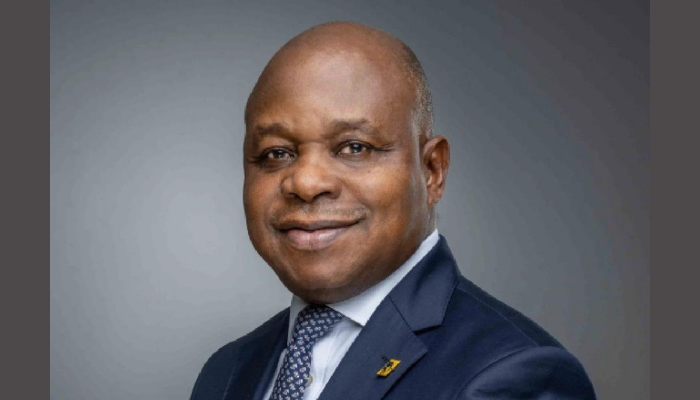- ‘Lagos Govt is Committed to Affordable Housing Delivery’
The Lagos State government has concluded plans to deliver 20,000 housing units in the next three years. This is aside the 4,355 housing units that have been commissioned across the three senatorial districts in the state. This, according to the government, will reduce the housing deficit gap and improve Lagosians‘ access of to affordable housing.
This was the submission of Governor Akinwunmi Ambode last week at the celebration of the World Habitat Day in Lagos. The governor, who was represented by his deputy, Mrs. Idiat Adebule, said the effort was connected to the overall objective of making the state liveable, especially its urban renewal and slum upgrading/regeneration.
According to the Ambode, this year’s celebration, themed: “Housing Policies: Affordable Homes,” is an integral part of the “Lagos @ 50” celebration to showcase the administration’s achievements in regeneration and urbanisation of the state.
He further stressed that with this year’s theme, the United Nations (UN) was calling the attention of governments around the world to the need to make housing within the reach of the common man.
“Shelter is one of the basic needs of man. The challenge before us is to explore innovative ways by which this can be achieved through public private part Wcontent in the construction of houses, ensure efficiency in land utilisation, as well as develop a financing system that is convenient, reasonable and economical,” the governor noted.
He said his administration’s position on affordable housing has been demonstrated through the Rent-to-Own scheme and Rental Housing Initiative, which are specifically designed with the low income and middle income earners in mind. Under both schemes, Ambode said, apart from reducing the initial deposit requirement from 30 per cent to five per cent, a larger proportion of 80 per cent of the total stock of housing units under this programme is dedicated to the Rent–to-Own scheme, which is targeted at the low income group.
He listed some of the projects the state is implementing under this include the redevelopment of Adeniji Adele Phase I-V, comprising 720 housing unit, into a residential mixed use development of 2, 500 – 3, 500 housing units and the redevelopment of Isale Gangan Phase I leading to the construction of 11–floor structure, which comprised 48 serviced luxury apartments. The second phase of this project, planned to be a 13-floor structure, is under construction.
“As we strive to provide the enabling environment for investment in the housing sector, we are open to new ideas, new technology and new methods, the private sector remains our key partner in ensuring the delivery of decent, functional and affordable housing in the quantity that will match the increasing demand across the state,” Ambode remarked.
Commissioner for Physical Planning and Urban Development, Mr. Anifowoshe Abiola, said making housing available and within the reach of the common man is one of the most critical issues in the socio-economic well-being of the people. This, he explained, is the reason the ministry is ready to partner more than ever before, with all stakeholders in the built environment in order to realise and bridge the gap of the housing stock deficit.
The guest speaker at the event, Mr. Fola Arthur-Worrey, maintained that the citizens have a responsibility of paying their taxes to make the implementation housing policies and actualising same to happen. He advised that people should have a clear cut idea of what they intend to use a house for before embarking on its ownership because owning a house is not necessarily a must.
“The reality is that majority of people cannot afford a home by themselves, hence, the reason for informal houses,” Arthur-Worrey said, while urging government to intervene in the unhealthy relationship between landlords and tenants, especially as it concerns incessant increase in rent.
Commissioner for Housing, Mr. Gbolahan Lawal, argued that to make houses affordable, there is a need to scale up the income of the citizens. He also advised the Federal Government to reduce interest rate on mortgage so that transaction cost will be reduced and that more people can come into the mortgage net.
In a similar vein, the UN Habitat programme manager in Nigeria, Kabir Yari, commended the state for consistently hosting the World Habitat Day and for being the only state in the country to be doing so.
He said affordable housing is a challenge that has made a lot of Africans live in slums, including about 60 per cent of the population living in informal settlements without water. He disclosed that this year’s Habitat Day is used by the UN to reflect on the state of towns and cities, and on the basic right of all to adequate shelter.
“Housing policies: Affordable homes, promotes one of UN-Habitat’s focal areas such as inclusive housing and social services. A safe and healthy living environment for all. The UN Sustainable Development Goals (SDG) number 11 target is that by 2030, everybody should live in safe and affordable houses; I have no doubt that Lagos State will continue to do the right thing,” Yari submitted.


 Naira4 weeks ago
Naira4 weeks ago
 Naira4 weeks ago
Naira4 weeks ago


 Naira4 weeks ago
Naira4 weeks ago




 Naira3 weeks ago
Naira3 weeks ago
 Commodities4 weeks ago
Commodities4 weeks ago


 Sport Business4 weeks ago
Sport Business4 weeks ago


 News3 weeks ago
News3 weeks ago


 Banking Sector4 weeks ago
Banking Sector4 weeks ago























